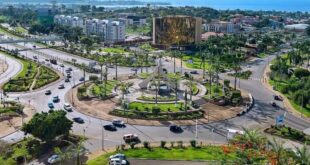
Sagnarigu, Ghana – Northern Regional Chairman of the Conference of Heads and Proprietors of Private Second-cycle Schools (CHOPSS), Rahman Sulemana, has implored the government to reconsider its decision not to partner with private Senior High Schools (SHSs) in the implementation of its Free SHS programme.
According to Mr. Sulemana, the FSHS programme though good by all standards, had also led to loss of sources of livelihood of many owners of private SHSs in the Northern Region and Ghana
as a whole.
The beleaguered Director of Tamale Institute of Business Studies (TIBS), said since the
introduction of the FSHS programme, he had had to close down two of the three campuses of his school due to lack of students.
Narrating the plight of CHOPSS at an education dialogue programme held at Sagnarigu, he disclosed that many of the over 20 private SHSs operating in the Tamale Metropolis and the Sagnarigu Municipality alone had also closed down their schools.

Mr. Sulemana appealed to the government to extend the FSHS policy to cover students in private SHSs and also limit the cut-off aggregate for admission into public SHSs to aggregate 30 or a raw score equivalent to aggregate 30.
“Government will then partner with private SHSs to provide access for those JHS graduates who score beyond aggregate 30 or a raw score equivalent to aggregate 30. Many private SHSs have specialized in challenging, motivating and transforming weak students into top class
students..”, he opined.
The event was organized by the Centre for Democratic Development (CDD-Ghana) in
partnership with the Graphic Communications Group, the Ghana CSO Platform on the SDGs and other civil society groups with funding from STAR-Ghana and the European Union, DANIDA and
UKaid.
Under theme: “Sixty-one (61) years of ‘free education’ in Northern Ghana: The myths, realities, dynamics, challenges and learning curves for FSHS policy”, the event sought to expose the FSHS to Ghanaians to understand critical aspects of it especially the double-track system that seem
unclear to many people.

Head of Programmes at the CDD, Dr. Frank Oduro expressed satisfaction about attendance and level of participation of the various stakeholders including teachers, headmasters,nongovernmental organisations and other actors in the educational sector.
He however expressed concern about how increasingly policymakers in past and present administrations keep implementing manifesto-based programmes without recourse to broader consultations and parliamentary debates for the purposes of scrutiny.
Dr. Oduro described the practice as appalling and hoped the New Patriotic Party and National Democratic Congress which have both ruled this country for a long time would engage different stakeholders in a broader scale in order to ensure successful implementation of programmes.
Meanwhile, during an open forum many participants urged the government to allow parents especially the rich who were willing to pay for the fees of their children do so since it was not everyone who was interested in everything free.
They also asked the government to stop interfering with the educational system of the country and allow technocrats at the ministry of education and Ghana Education Service to do the work.
According to the participants, until government washed its hands-off the implementation of policies and management of country’s educational system, quality of students produced at
various levels would continue to dwindle.
By Savannahnewsonline.com/Philip Liebs
 Savannah News Online Reporting Only What Matters Most
Savannah News Online Reporting Only What Matters Most



